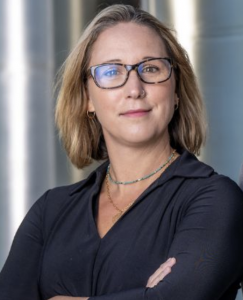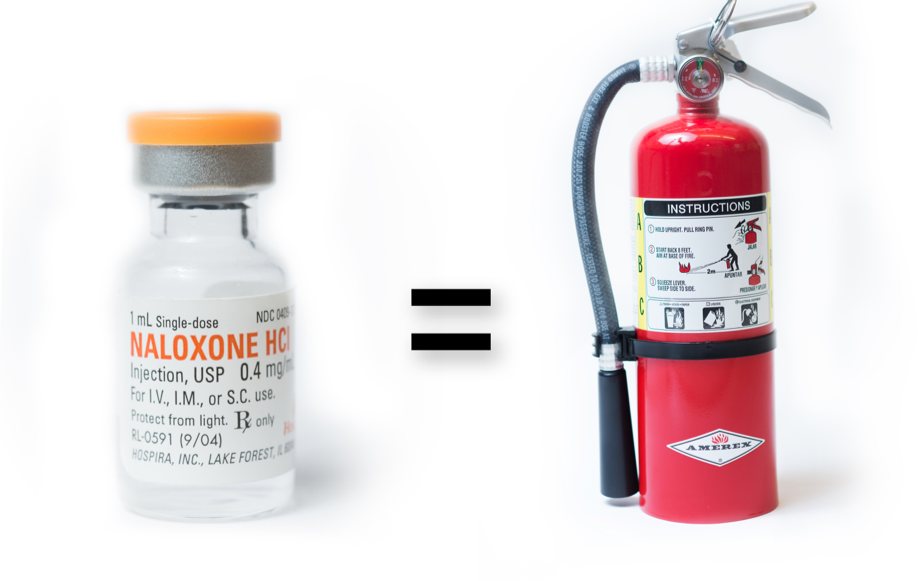Rhode Island Foundation provides $250,000 to College of Pharmacy program
The URI College of Pharmacy’s Community First Responder Program (CFRP) will be able to buy thousands more Narcan opioid overdose prevention kits to distribute across Rhode Island, thanks to a $250,000 grant from the Rhode Island Foundation.
The CFRP provides free Narcan and educational training seminars, mostly to local rural communities that have traditionally not been as much of a focus for opioid mitigation as more urban areas. Trainees of the program receive a free naloxone (Narcan) nasal spray kit — the medication to reverse an opioid overdose — and may request fentanyl test strips to help detect the lethal synthetic opioid.

“Understanding how to recognize an overdose, and having these resources can help save lives when seconds are crucial,” said Clinical Associate Professor Anita Jacobson, who coordinates the program. “Anyone who knows someone taking opioids for any reason can be trained to recognize and respond to an overdose.”
The RI Foundation grant comes at a time when naloxone supplies are seriously depleted. Drug overdose deaths in the state increased 25 percent last year compared to 2019, according to the Rhode Island Department of Health, which notes a record 384 Rhode Islanders died of a drug overdose last year. Preliminary data indicate that 2021 could be even worse. Additionally, the street drug supply is increasingly lethal due to the presence of the very strong opioid, fentanyl, which was involved in three out of every four overdose deaths in 2020. Fentanyl is often found in counterfeit pills being illicitly sold as oxycodone, Adderall or benzodiazepines, as well as illicit drugs like cocaine and heroin.
“Narcan kits are a simple solution to a deadly problem,” said Neil Steinberg, president and CEO of the foundation. “While our funding will save lives, it’s just a large, yet critically needed, ‘band aid’ until a sustainable funding source is put in place. The current shortage is a clear call for others to join with us and our partners to ensure Rhode Island has the resources to address this deadly health crisis as well as to confront the underlying causes of substance use disorder.”
The grant to URI will enable the Community First Responder Program to purchase about 3,000 Narcan kits for distribution to community-based recovery and harm reduction organizations. RIDOH estimates that equates to about a two-month supply of the lifesaving emergency antidote.
“We are excited to be the distribution partner with the Department of Health for this naloxone donation and are working to ensure the naloxone gets into the hands of our community partners in harm reduction and recovery as soon as possible,” Jacobson said. “The nature of our previous funding restricted our naloxone distribution efforts to rural areas of Rhode Island. This grant will enable us to go wherever there is a need. When it comes to the drug overdose and addiction crisis, there are no borders.”
Narcan kits are routinely carried by law enforcement and emergency medical personnel as well as mobile outreach workers from community-based harm reduction organizations. The Narcan kits come with two doses of naloxone nasal spray that can be dispensed directly into the nostrils of someone who is overdosing.
The funding for the Foundation’s grant comes in part from the Behavioral Health Fund, which was created with funding from Blue Cross & Blue Shield of Rhode Island.
“We are extremely grateful to the Rhode Island Foundation for providing critical funding for the purchase of lifesaving naloxone during an especially challenging time in our state,” said state health director Nicole Alexander-Scott. “By bridging this gap, our trusted community partners can continue to get naloxone into the hands of Rhode Islanders most impacted by addiction and overdose, as well as their family members and friends. We all have a role to play to reduce overdose deaths and save lives.”

